El mejor barroco español desembarca en el prestigioso Festival de Música Barroca de Londres de la mano del CNDM y el Instituto Cervantes

Bajo el título Beyond the Spanish Golden Age (Más allá del Siglo de Oro español), cinco de las mejores agrupaciones y artistas españoles especializados en la interpretación del repertorio español antiguo y barroco desembarcarán en mayo de 2023 en el prestigioso Festival de Música Barroca de Londres, en la iglesia de St John’s Smith Square, y en el Centro Nacional para la Música Antigua de York. Estas formaciones y artistas de referencia son La Grande Chapelle (12 de mayo), Concerto 1700 (13 de mayo/ 14 de mayo en York), L’Apothéose (13 de mayo), José Miguel Moreno (14 de mayo) y Raquel Andueza y La Galanía (14 de mayo/ 13 de mayo en York).
El objetivo de este proyecto es mostrar la riqueza, la singularidad y la calidad de nuestro patrimonio musical en dos espacios internacionales de renombre que son fundamentales para la promoción de la música española; así como apoyar a los intérpretes españoles, tendiendo puentes que les permitan establecer vínculos duraderos en el tiempo con estas ambiciosas programaciones. Además, la propuesta supone una gran oportunidad para compartir fuera de nuestras fronteras la personalidad única del repertorio español y descubrir joyas musicales de la mano de algunos de nuestros mejores intérpretes especialistas en este género, tanto en su faceta instrumental como vocal.
Esta coproducción internacional se realiza en el marco del Proyecto Europa, el Programa de Internacionalización de la Música y Artes Escénicas españolas, coorganizado por el Instituto Cervantes y el Centro Nacional de Difusión Musical, INAEM, Ministerio de Cultura y Deporte de España, y el Plan de Recuperación, Transformación y Resiliencia — financiado por la Unión Europea— Nextgeneration.eu. Cuenta con la colaboración de la Embajada de España en Reino Unido y la colaboración de Acción Cultural Española (AC/E), en el marco de la celebración del 10º aniversario de su programa PICE para la Internacionalización de la cultura española.
Geolocalizaciones y nuevas ruralidades
En el mes de mayo traeremos a nuestro canal de Vimeo el ciclo de cine «Geolocalizaciones y nuevas ruralidades», en el que podrás disfrutar de cuatro documentales que proponen nuevas formas de entender las comunidades rurales, que encuentran en la solidaridad y en la dependencia de unos y otros los verdaderos vínculos que han definido siempre lo humano. ¡Déjate conquistar por la vida rural!
PROGRAMA
▶️ 5 de mayo: «Soñando un lugar» (2018), de Alfonso Kint
▶️ 12 de mayo: «Os fillos da vide» (2017), de Ana Domínguez
▶️ 19 de mayo: «150 i una Grossa» (2020), de Aurora Sulli y Núria Deulofeu 8
▶️ 26 de mayo: «Los saldos» (2022), de Raúl Capdevila
Rincón bibliográfico mayo 2023: EDUARDO MENDOZA
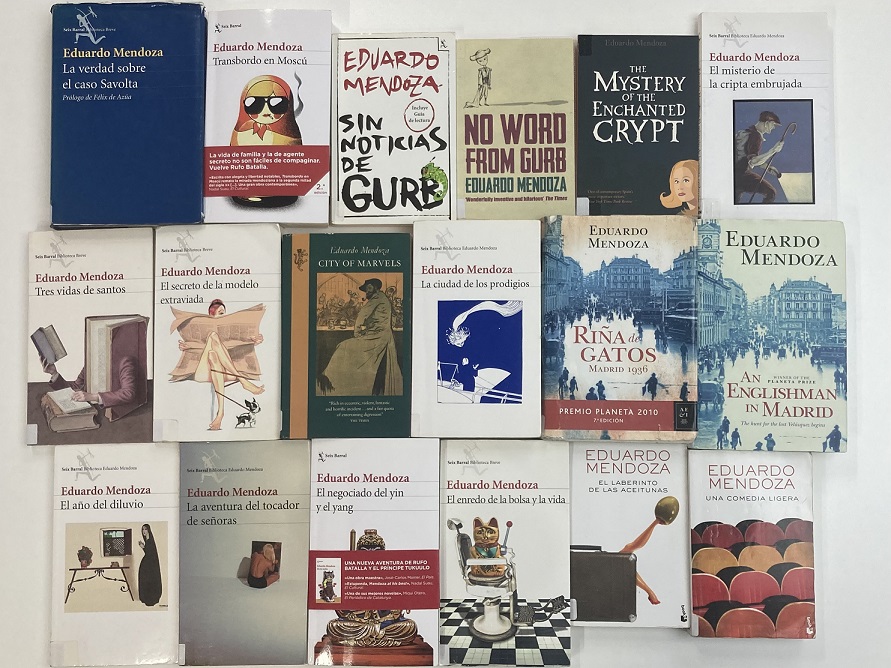
Este mes de mayo 2023 lo dedicamos a Eduardo Mendoza (Barcelona, 11 de enero de 1943), autor teatral, novelista, abogado y traductor.
En 2010 premio Planeta de Novela, con Riña de gatos. Madrid, 1936
En 2015 premio Franz Kafka, por La verdad sobre el caso Savolta.
En 2016 se le concede el Premio Cervantes
El cineclub virtual «Cita con el cine» comienza su programación de 2023 con Tótem loba
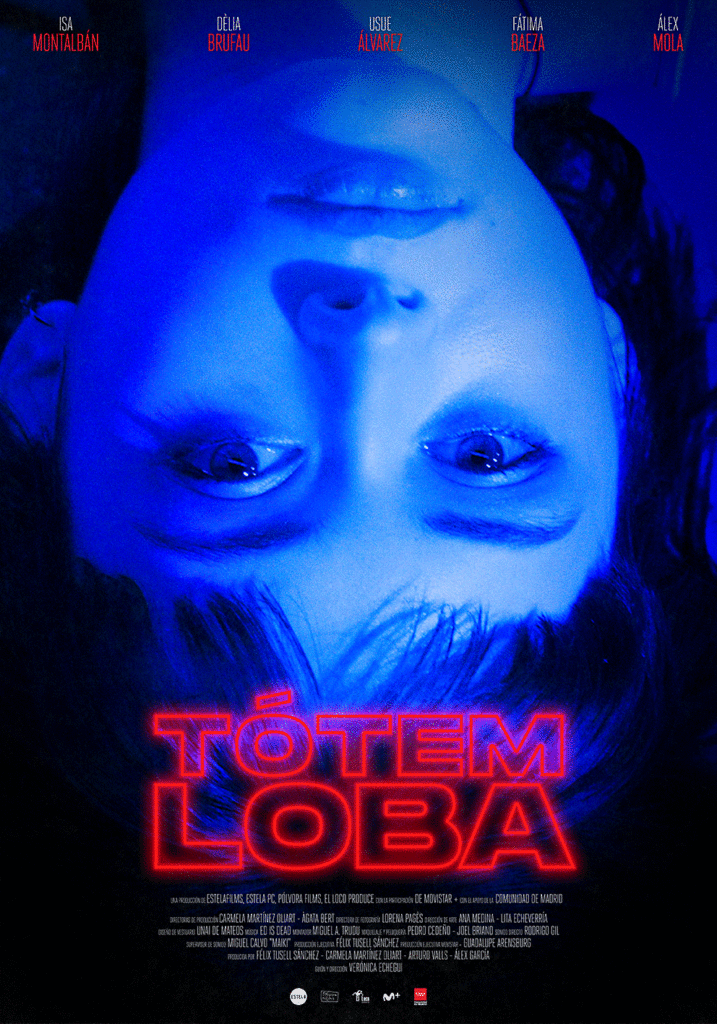
El cineclub virtual «Cita con el cine» comienza su programación de 2023 con Tótem loba, de Verónica Echegui.
La actriz y directora Verónica Echegui ganó el Premio Goya que otorga la Academia del cine español con este cortometraje basado en una experiencia real. Esta historia narrada en clave de thriller logra llevar este género a un terreno insospechado, con resultados inesperados.
Sinopsis: Estíbaliz acepta la invitación de su amiga del instituto, Raquel, a las fiestas de su pueblo. Lo que se presenta como un fin de semana divertido y excitante pronto se revela como una pesadilla, al descubrir Estíbaliz que en el pueblo de su amiga la tradición es que los hombres se disfracen de lobos y salgan a cazar a las mujeres durante la noche. Y lo que resulta más aterrador aún es que a nadie parece importarle ni alarmarle esta abominable costumbre.
La actividad está moderada por personal del Instituto Cervantes. Los encuentros, que tienen lugar en un chat en directo, cuentan con la participación de especialistas vinculados a la realización de la película (cineastas, guionistas…). ¡Disfruta del cine en español!
INFORMACIÓN
Fecha: Del 14/04/2023 al 28/04/2023
Observaciones: Actividad en línea. El visionado y la participación tendrán lugar en la plataforma del cineclub virtual de la red de bibliotecas del Instituto Cervantes. Se requiere estar en posesión de un carnet de biblioteca vigente.
Rincón bibliográfico abril 2023- Federico García Lorca
Federico García Lorca es el poeta español más más conocido y estudiado en el Reino Unido y, en general, en el mundo anglosajón. Por tal motivo, la biblioteca del Instituto Cervantes de Londres posee más de doscientos materiales sobre él o escritos por él. Para el rincón bibliográfico de este mes hemos realizado una selección de libros y otros materiales, fundamentalmente en inglés sobre su vida y su obra.
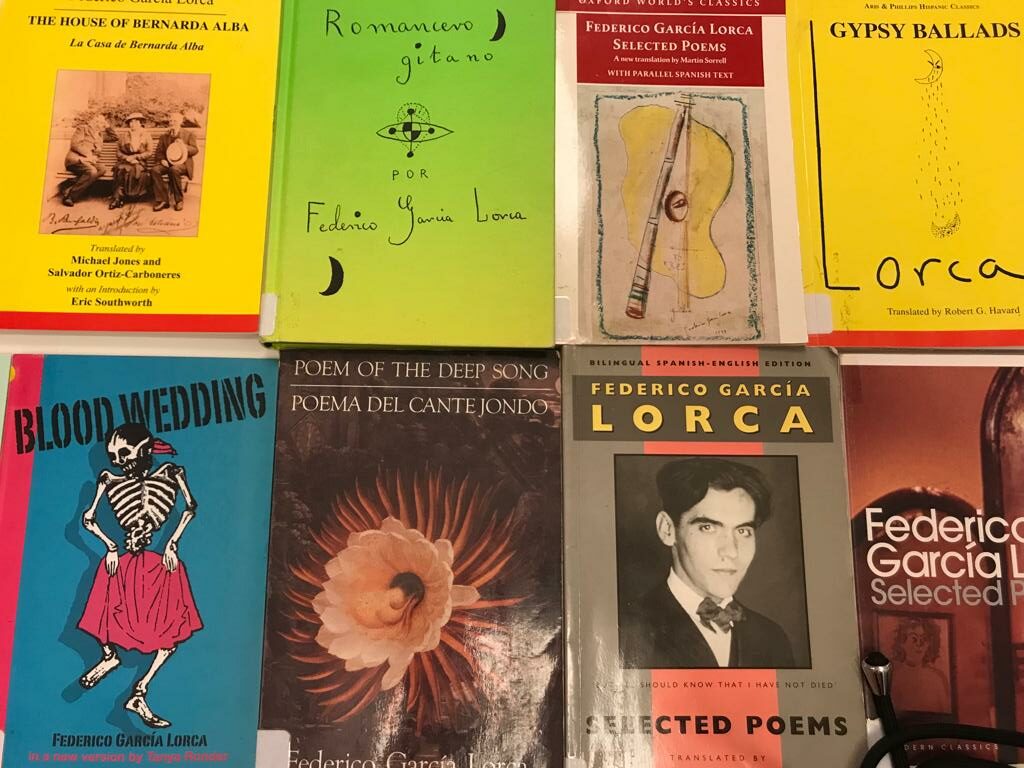
The University of Cambridge and Instituto Cervantes London sign a collaboration agreement
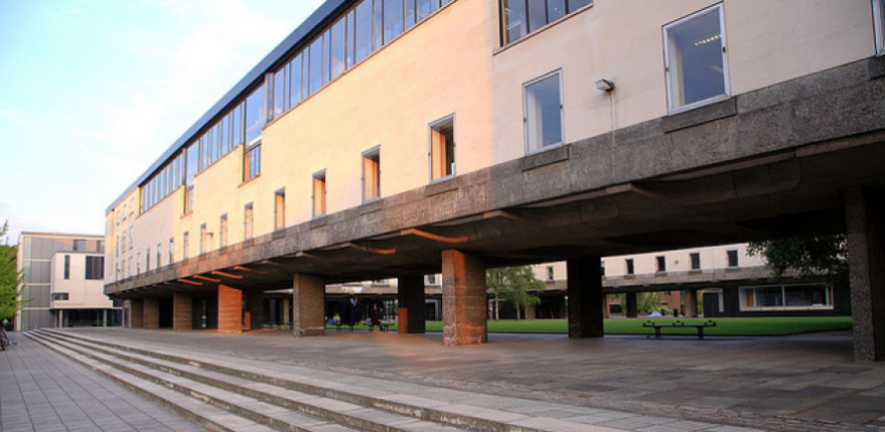
The Faculty of Modern and Medieval Languages and Linguistics at the University of Cambridge and the Instituto Cervantes in London have signed an agreement to collaborate on joint academic and cultural activities and projects.
The aforementioned department of the University of Cambridge, one of the largest in the United Kingdom and one of the most prominent in teaching and research will co-organise events, exhibitions and other cultural activities with the Cervantes Institute in London, as well as teaching activities.
The Department of Spanish and Portuguese welcomes the signing of this bilateral agreement, which represents a unique opportunity for collaboration between our institutions: «We will work together on initiatives such as the Cervantes Lecture, which will be held every year, inviting leading figures of Hispanic culture to give talks in London and Cambridge, opening the doors of the university to a non-academic audience and engaging in an open and stimulating dialogue».
For his part, the Director of the Instituto Cervantes in London, Víctor Ugarte, said that the signing of this agreement «consolidates the relationship between the Instituto Cervantes in London and the University of Cambridge, with whom we have been collaborating until now. In particular, we will continue to co-organise the Cervantes Forum, which this year will have the Equatoguinean writer Donato Ndongo-Bidyogo as its guest speaker. On the other hand, we hope to collaborate on academic and cultural projects that will strengthen the ties between the two institutions.
Cervantes Forum
With this commitment, both institutions undertake to organise educational and cultural activities and actions to promote activities, including the Cervantes Forum, an annual event in which the universities of Oxford and Newcastle also collaborate.
The Cervantes Forum, with the collaboration of these world-renowned universities, is structured mainly through talks and meetings within the framework of the seminar of the Spanish department of these academic institutions.
After the Spanish writer Eduardo Mendoza’s visit to Cambridge and Newcastle last year, in 2023 the Forum will be attended by the Equatoguinean writer Donato Ndongo in Cambridge.
La Universidad de Cambridge y el Instituto Cervantes de Londres firman un convenio de colaboración

El Departamento de Español y Portugués de la Universidad de Cambridge y el Instituto Cervantes de Londres firmaron un convenio para colaborar en actividades y proyectos académicos y culturales conjuntos.
El citado departamento de la Universidad de Cambridge, una de las más grandes del Reino Unido y una de las más destacadas en docencia e investigación, coorganizará con el Instituto Cervantes de Londres eventos, exposiciones y otras actividades culturales, así como actividades docentes.
El Departamento de Español y Portugués celebra la firma de este acuerdo bilateral, que representa una oportunidad única de colaboración entre nuestras instituciones: “Trabajaremos juntos en iniciativas como la “Cervantes Lecture”, que se celebrará cada año, invitando a figuras señeras de la cultura hispánica a dar charlas en Londres y Cambridge, abriendo las puertas de la universidad a un público no exclusivamente académico y entablando un diálogo abierto y estimulante”.
Por su parte, el director del Instituto Cervantes de Londres, Víctor Ugarte, señaló que la firma de este convenio “supone el consolidar la relación entre el Instituto Cervantes de Londres y la Universidad de Cambridge con quien ya colaborábamos hasta ahora. En especial, seguiremos coorganizando el Foro Cervantes, que este año tendrá como invitado al escritor ecuatoguineano Donato Ndongo-Bidyogo. Por otro, esperamos colaborar en proyectos académicos y culturales que refuercen los lazos entre las dos instituciones”
Foro Cervantes
Ambas entidades asumen con este compromiso organizar actividades y acciones educativas y culturales para fomentar actividades, entre las que cabe destacar el Foro Cervantes, una cita anual en la que también colaboran las universidades de Oxford y Newcastle.
El Foro Cervantes, con la colaboración con estas universidades de referencia mundial, se estructura principalmente a través de charlas y encuentros en el marco del seminario del departamento de español de estas entidades académicas.
Tras el periplo del escritor español Eduardo Mendoza por Cambridge y Newcastle el pasado año, en 2023 el Foro contará con la presencia del escritor ecuatoguineano Donato Ndongo en Cambridge.
Spanish courses in spring 2023 at Instituto Cervantes London
If you want to study Spanish in London, these are some of the benefits we offer:
- Our teachers are all Spanish-speaking natives and are professionals in teaching Spanish as a foreign language.
- We have reduced groups, online and in-person, which guarantee a greater distance and personalisation. We also offer private classes and classes for businesses.
- We offer a wide range of morning and afternoon schedules, from Monday to Saturday, and a wide range of courses, from complete beginners to advanced level, as well as conversation, film, literature, current affairs or business courses. We also have courses for children and teenagers.
- Our classes are very practical and you will quickly learn how to communicate and carry out a conversation in Spanish. We are also the official certification centre for the DELE, SIELE, CCSE and DADIC tests and a Spanish teacher training centre.
- Easy commuting to our centres and modern facilities, close to Temple, Holborn, Waterloo and Blackfriars station. Or attend classes via a videoconferencing system.
- We have a library with a wide variety of books, where our students have a preferential agreement with free access to borrowing books and other materials and offer cultural activities with exclusive events.
Cuentacuentos y actividad con motivo del Día del Libro
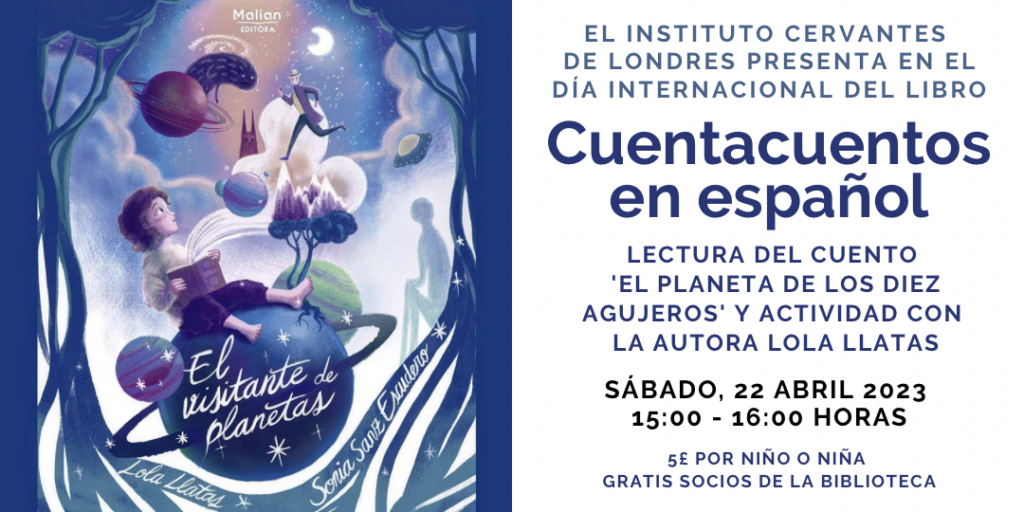
El Instituto Cervantes de Londres, con motivo del Día del Libro, celebra un cuentacuentos con la autora Lola Llatas, quien leerá el cuento ‘El planeta de los diez agujeros’, de “El visitante de planetas”, de Malian Editora, un libro mágico para niños y niñas a partir de 8 años.
Una historia que hará soñar, sonreír y pensar a los niños y todos sus acompañantes. ‘El planeta de los diez agujeros’ cuenta el paso del abuelo Alfonso por ese extraño lugar. Al parecer, se está librando una feroz batalla en él, aunque nunca nada es lo que parece.
Después, la autora realizará una actividad con los asistentes: en la que inventaremos galaxias y describiremos, bien mediante dibujos o con texto, a los habitantes que podrían habitarlos. Entre todos, construiremos una historia única.
El cuento contiene aventuras y es muy dinámico, por lo que es ideal para un público incluso más joven o para los adultos que les acompañen.
Edad
A partir de 8 años
Fecha
Sábado 22 de abril 2023 – de 15:00 horas a 16:00 horas
Entrada
Aforo máximo: 50 personas (niños+padres/guardián)*.
Entrada: 5£ por niño y gratuita para los socios de la biblioteca hasta completar aforo. Inscripciones vía Eventbrite.
*La inscripción para padres/guardián sólo la puede realizar uno de ellos. Se admitirán a los dos si el aforo no estuviera completo, sino uno de ellos podría esperar en la biblioteca.
Lugar
Sala Luis Cernuda, Instituto Cervantes de Londres
15-19 Devereux Ct, Temple, London WC2R 3JJ
Interest in Instituto Cervantes Teaching Accreditation Diploma (DADIC) continues to grow given increasing demand for learning Spanish in the United Kingdom
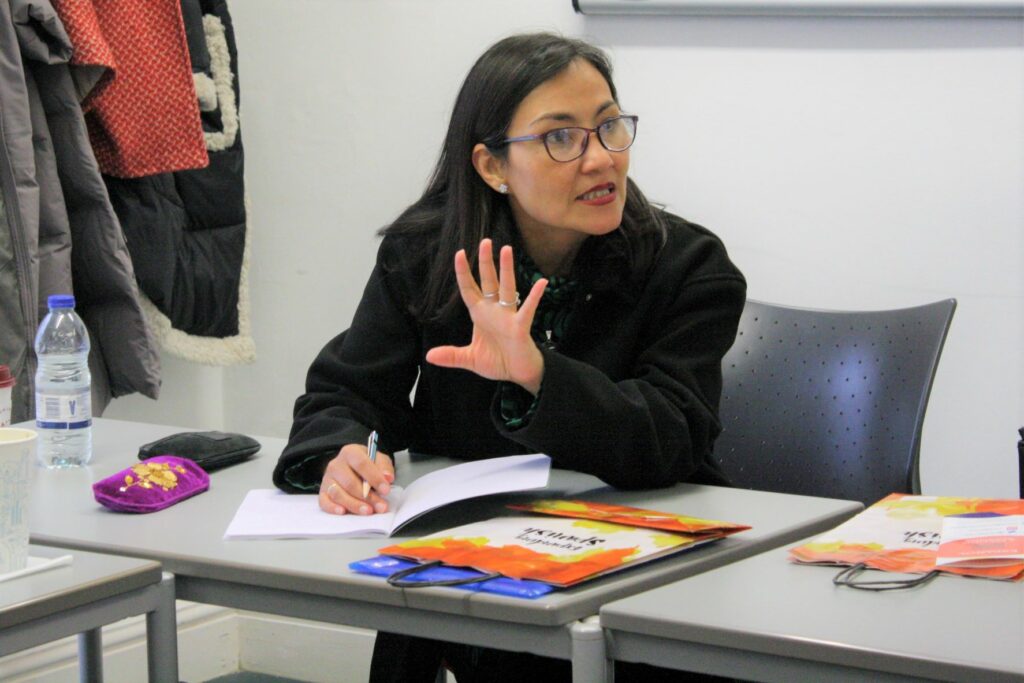
Instituto Cervantes London is training future teachers of Spanish as a foreign language through its preparation course for the Instituto Cervantes Teaching Accreditation Diploma (DADIC-A, autonomous level) within the context of an increasing demand for learning Spanish in the United Kingdom. A new group of students is about to complete the second module during the course’s fourth edition.
“The preparation course for the DADIC- A enables participants to teach Spanish communicatively, efficiently and professionally”, says Antonio Vañó Aymat, head of studies at Instituto Cervantes London. “Training new Spanish teachers in the United Kingdom is important to us. Spanish is one of the most studied languages in the country, and the demand for experienced qualified teachers of this language continues to grow”, adds Vañó Aymat.
“Training new teachers allows Instituto Cervantes to play a part in how Spanish is taught in the UK. We ensure high-quality teaching through a unique student-centred, action-oriented methodology. It combines theory and practice and is based on action, interaction and reflection to broaden future teachers’ skills and equip them with the tools needed to analyse and develop their professional practices”, the head of studies explains.
The course is aimed at those with no previous experience or training in teaching Spanish as a foreign language. A pleasantly surprising aspect of the fourth edition is participants’ level of education. They hold degrees in various fields: some have completed diplomas, Master’s degrees and PhDs in Education, Communications and Hispanic Studies, while others come from what are usually considered unrelated backgrounds such as engineering and business management.
“The level of education held shows that the high-quality professional training offered by Instituto Cervantes London attracts exceptional students seeking to improve their skills in teaching Spanish as a foreign language”, emphasises Vañó Aymat. Moreover, participants’ great interest and will to learn reflects “their commitment to teaching the language”. Students are from all over the Spanish-speaking world, which enriches and diversifies their learning experience.
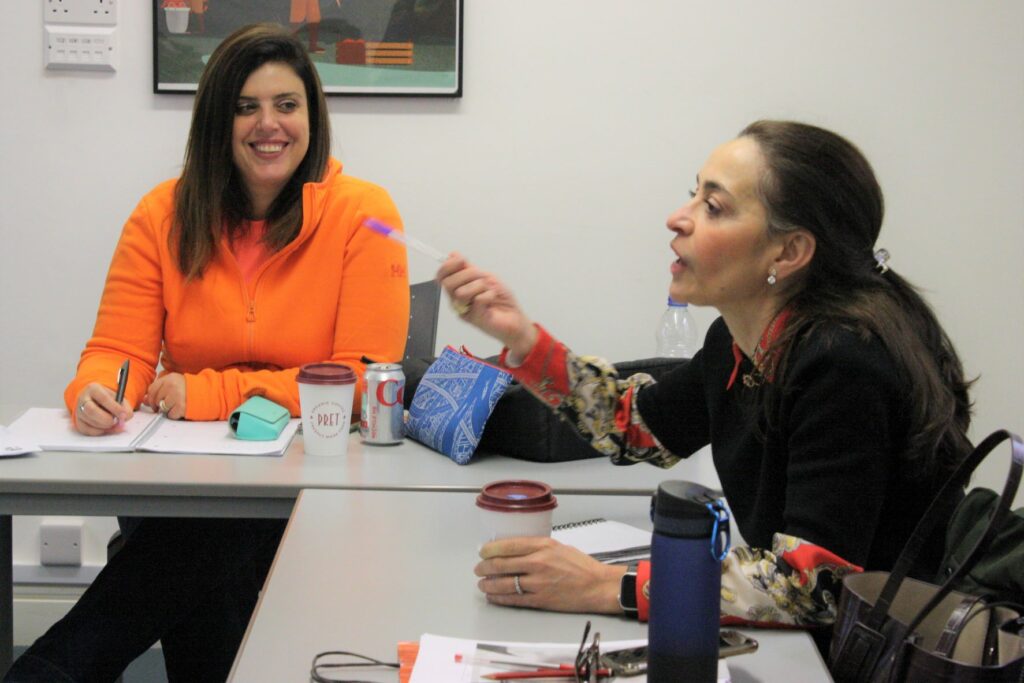
Increasing demand for learning Spanish in the United Kingdom
Venezuelan student Gitanjali Wolfermann, who has been living in London for just over five years, says, “I was pleasantly surprised by the increasing demand for learning Spanish in the UK, and especially by the desire to learn about Latin American culture. Here in London, I am far from home, but not my culture, which is inherently linked to my mother tongue, the language I think and feel in.”
In Wolfermann’s case, sharing her love for her language and culture is what inspired her to teach Spanish. “I chose the course because of its extensive curriculum and highly qualified, experienced teachers. I was also drawn to the combination of theory and practice”, she said.
Wolfermann also highlights that she and her fellow participants have been exposed to various levels, from beginners’ through to advanced. “This is not available everywhere, as a lot of the courses are online”, she notes. Another factor that persuaded her was the qualification achieved, which is certified by Instituto Cervantes.
“Many people think that being a native speaker of a language automatically means you can teach it. This is far from true. A teacher needs many tools and techniques to help students progress. It is no good teaching them isolated grammar rules or making them repeat meaningless phrases; it helps to build connections to better their understanding of the language and its rich culture”, Wolfermann highlights.
A very valuable experience
Jesica Paz, who is from Chile, wishes to become a Spanish teacher to work with students from diverse backgrounds, cultures and age groups. She wants to share her language and culture with them while also learning about theirs. She says, “I wanted to take the course to acquire new teaching tools and models that will help me improve the planning, development and analysis of the classes I give.”
In Paz’s view, taking the preparation course for the DADIC-A has been a “very valuable experience on both a personal and professional level”, as she has learnt new things that leave her better prepared for the future inside and outside of the classroom.
Paz highlighted that what she liked most about the course is that it has given her “new tools that will lead to greater professional development”, and she is certain that the qualification will open doors to the possibility of teaching Spanish anywhere in the world.
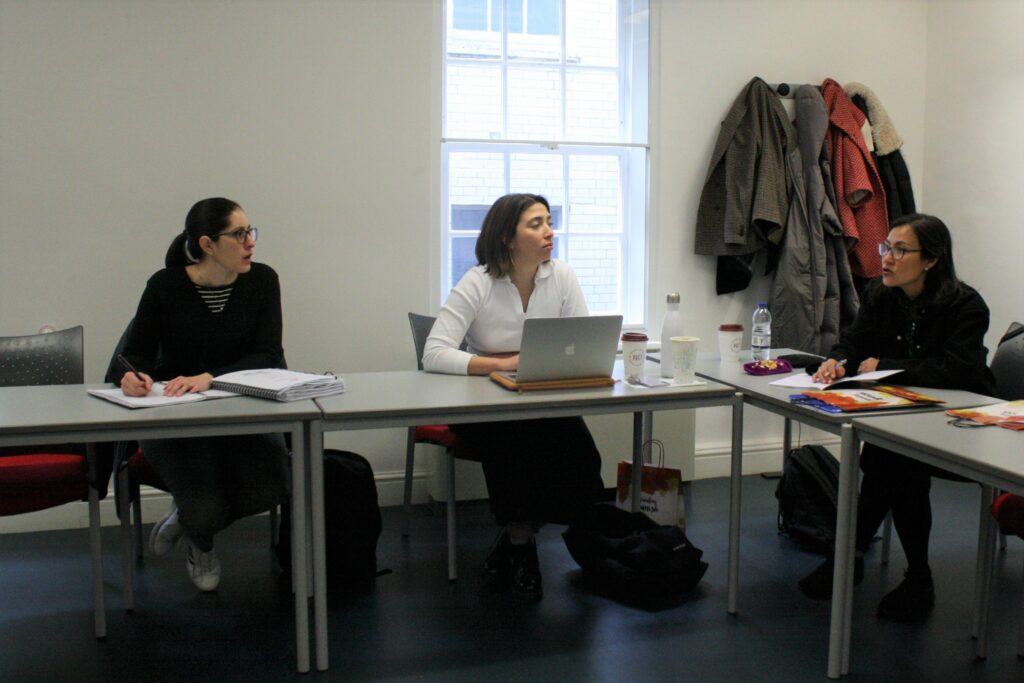
Taking the DADIC was the best decision
Student Milagrosa Villalobos, who is from Seville and has been living in London since 2011, began her journey as a Spanish teacher during the pandemic, when native speakers were needed to help Spanish A Level students prepare for their exams.
“After a few years helping young people learn and improve their Spanish, I decided it was time to formally train. Taking the DADIC was the best decision I could have made. The excellent course instructors have guided me in the right direction on my journey as a Spanish teacher”, explains Villalobos, adding that the course was “great from the start, in relation to both the learning experience and the instructors leading the course”.
A practical course to help develop teaching skills
Instituto Cervantes London has been offering this introductory course in teaching Spanish to adults since October 2019. It is aimed at those with no previous experience or training, and is divided into two modules, which focus on the early development of teaching skills and preparing for the DADIC-A.
Upon completion, teachers no longer require supervision. They are able to make decisions independently in relation to managing the language teaching, learning and assessment process.
Equally, they are well prepared to apply techniques and models learnt during the course and take risks with new approaches in the classroom. They are also able to adapt their teaching style to other contexts and will be able to critically review and improve their performance.
More information about the Preparation course for the DADIC-A








